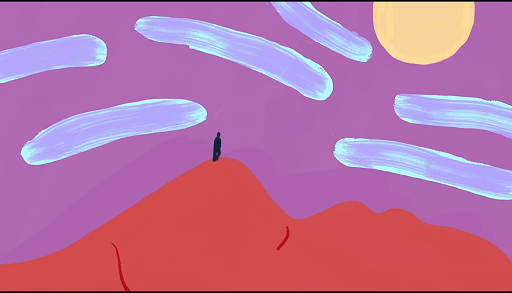2 Nobody Stands Nowhere
At the heart of the proposal for ‘Religion and Worldviews’ is the intention to emphasise the importance of engaging with individuals’ lived experiences. It is a way of framing the subject to emphasise the importance of pupils becoming ‘responsible interpreters’ of information, developing both educated moral judgement as well as critical thinking skills (Cooling et al., 2020).
Activity 2
Now watch the video ‘Nobody Stands Nowhere’ and consider the implications of what it might mean to make this approach central to Religious Education in schools.

Transcript: Nobody Stands Nowhere
[MUSIC PLAYING]
[MUSIC PLAYING]
Discussion
This film was designed to illustrate the importance of the idea that ‘nobody stands nowhere’. Exploring in a sensitive and evidence-based way where we and others ‘stand’ is the fundamental reframing of Religious Education recommended by the Religion and Worldview proposal.
As Professor Trevor Cooling explains, because everyone has a worldview, the ‘risk that certain views will be allowed irresponsibly to influence education is a risk for everyone – not just those with a religious affiliation – and we therefore need to ask what responsible influence looks like in education, rather than trying to exclude the influence of worldviews altogether’ (Cooling et al., 2020).
Attention to religious and non-religious worldviews is a rich and valuable access point for understanding the complexity of navigating moral and social choices in our complex society. As is illustrated well in the animation, ‘where we stand’ is fluid and changing both for individuals and organisations. Understanding how this process works in our own lives and in the social world cannot be simplified into a list of facts to be memorised. Good RE teaches us how to bring parts of our identity which are deeply personal and influential into public discussion with our community.
Our perspective – ‘where we stand’ – is brought into all our decisions whether they be personal, academic or professional. Religious Education is an opportunity to examine this fact head-on and learn how to negotiate ‘where we stand’ and ‘where does truth lie?’ in constructive dialogue with others who stand in different locations.
In the next activity, you are going to consider further our own values, hopes and aspirations – and the roots of these life goals. You will do this through engaging with the metaphor of an ‘identity tree’.
